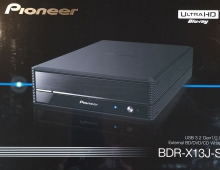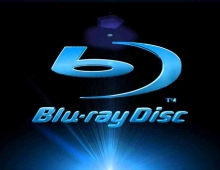
MPEG-only bows out of codecs race
Facing the inevitability of multiple audio/visual codecs required in new-generation digital set tops, Broadcom Corp. will stop developing MPEG-only chips by the second quarter of this year.
Speaking at the DVB World 2005 conference, Aidan O'Rourke, Broadcom's marketing director said, "As a chip vendor, it would be ludicrous to bet on one horse."
Broadcom last December unveiled its own H.264 decoder IC designed to work as "a side car" to the company's mother chip, or set-top system-on-chip. Broadcom is integrating the new H.264 chip into its existing MPEG-2-based SoC to create a multicodec IC. Broadcom is also adding VC-1 capability to the system.
While the trend toward multicodecs grows among chip makers, broadcasters still must find a preferred codec for their content. Key intellectual property holders of advanced video codecs such as H.264 are demanding royalties not only from set-top vendors but also from broadcasters.
BSkyB announced Wednesday that its HDTV service in the U.K. scheduled for launch next year will use an H.264-based advanced video codec. Although BSkyB has yet to license H.264 IP, Brian Sullivan, BSkyB's director, indicated it is beginning that process. "We will be there," he said.
Many in the DVB group characterize licensing terms for H.264 as less than perfect, but "acceptable." Gilles Maugars, chief technology officer at TPS, a service provider in France, called royalties for H.264 "relatively reasonable." He quickly added, "If you add the cost of transport, satellite, programs and others, there is more to say about that."
No European service provider has announced a commercial digital TV plan based on VC-1. Originally derived by Microsoft Corp.'s proprietary Windows Media Video 9 technology, VC-1 is currently in development within the Society of Motion Pictures and Television Engineers (SMPTE). Although ballots for VC-1 have reportedly been cast, SMPTE has not announced the outcome.
In the U.S., SBC may become the first operator to deploy VC-1-based IPTV services. SBC, which has picked Microsoft as a system integrator for its IPTV infrastructure, has reportedly flip-flopped on the advanced video codec it plans to adopt. The telecom giant was initially committed to H.264, but it is now said to be leaning towards VC-1.
"The spec is not locked in yet," said Broadcom's O'Rourke.
For its IPTV deployment, SBC selected Motorola and Scientific Atlanta as IP set-top suppliers. Three chip vendors ? Broadcom, STMicroelectronics and Sigma Design ? are still in the race. Microsoft, meanwhile, is said to be calling the shots for SBC on everything from a back-office systems to SoC specs for IP set tops.
The DVB group, which has already embraced H.264, did not include VC-1 in its so-called "DVB Toolbox" for advanced video codecs. Theo Peek, DVB group's chairman, said it is keeping its option open for VC-1. For any new audio-visual codec to be considered for evaluation, it first needs support from at least five DVB members, according to Ken McCann, chair of AV coding group at DVB. The group also requires new AV codecs to be published by an international standards body, and that IP rights be made available under fair, reasonable and nondiscriminatory terms.
Microsoft has yet to meet these requirements for VC-1.
Broadcom last December unveiled its own H.264 decoder IC designed to work as "a side car" to the company's mother chip, or set-top system-on-chip. Broadcom is integrating the new H.264 chip into its existing MPEG-2-based SoC to create a multicodec IC. Broadcom is also adding VC-1 capability to the system.
While the trend toward multicodecs grows among chip makers, broadcasters still must find a preferred codec for their content. Key intellectual property holders of advanced video codecs such as H.264 are demanding royalties not only from set-top vendors but also from broadcasters.
BSkyB announced Wednesday that its HDTV service in the U.K. scheduled for launch next year will use an H.264-based advanced video codec. Although BSkyB has yet to license H.264 IP, Brian Sullivan, BSkyB's director, indicated it is beginning that process. "We will be there," he said.
Many in the DVB group characterize licensing terms for H.264 as less than perfect, but "acceptable." Gilles Maugars, chief technology officer at TPS, a service provider in France, called royalties for H.264 "relatively reasonable." He quickly added, "If you add the cost of transport, satellite, programs and others, there is more to say about that."
No European service provider has announced a commercial digital TV plan based on VC-1. Originally derived by Microsoft Corp.'s proprietary Windows Media Video 9 technology, VC-1 is currently in development within the Society of Motion Pictures and Television Engineers (SMPTE). Although ballots for VC-1 have reportedly been cast, SMPTE has not announced the outcome.
In the U.S., SBC may become the first operator to deploy VC-1-based IPTV services. SBC, which has picked Microsoft as a system integrator for its IPTV infrastructure, has reportedly flip-flopped on the advanced video codec it plans to adopt. The telecom giant was initially committed to H.264, but it is now said to be leaning towards VC-1.
"The spec is not locked in yet," said Broadcom's O'Rourke.
For its IPTV deployment, SBC selected Motorola and Scientific Atlanta as IP set-top suppliers. Three chip vendors ? Broadcom, STMicroelectronics and Sigma Design ? are still in the race. Microsoft, meanwhile, is said to be calling the shots for SBC on everything from a back-office systems to SoC specs for IP set tops.
The DVB group, which has already embraced H.264, did not include VC-1 in its so-called "DVB Toolbox" for advanced video codecs. Theo Peek, DVB group's chairman, said it is keeping its option open for VC-1. For any new audio-visual codec to be considered for evaluation, it first needs support from at least five DVB members, according to Ken McCann, chair of AV coding group at DVB. The group also requires new AV codecs to be published by an international standards body, and that IP rights be made available under fair, reasonable and nondiscriminatory terms.
Microsoft has yet to meet these requirements for VC-1.





















